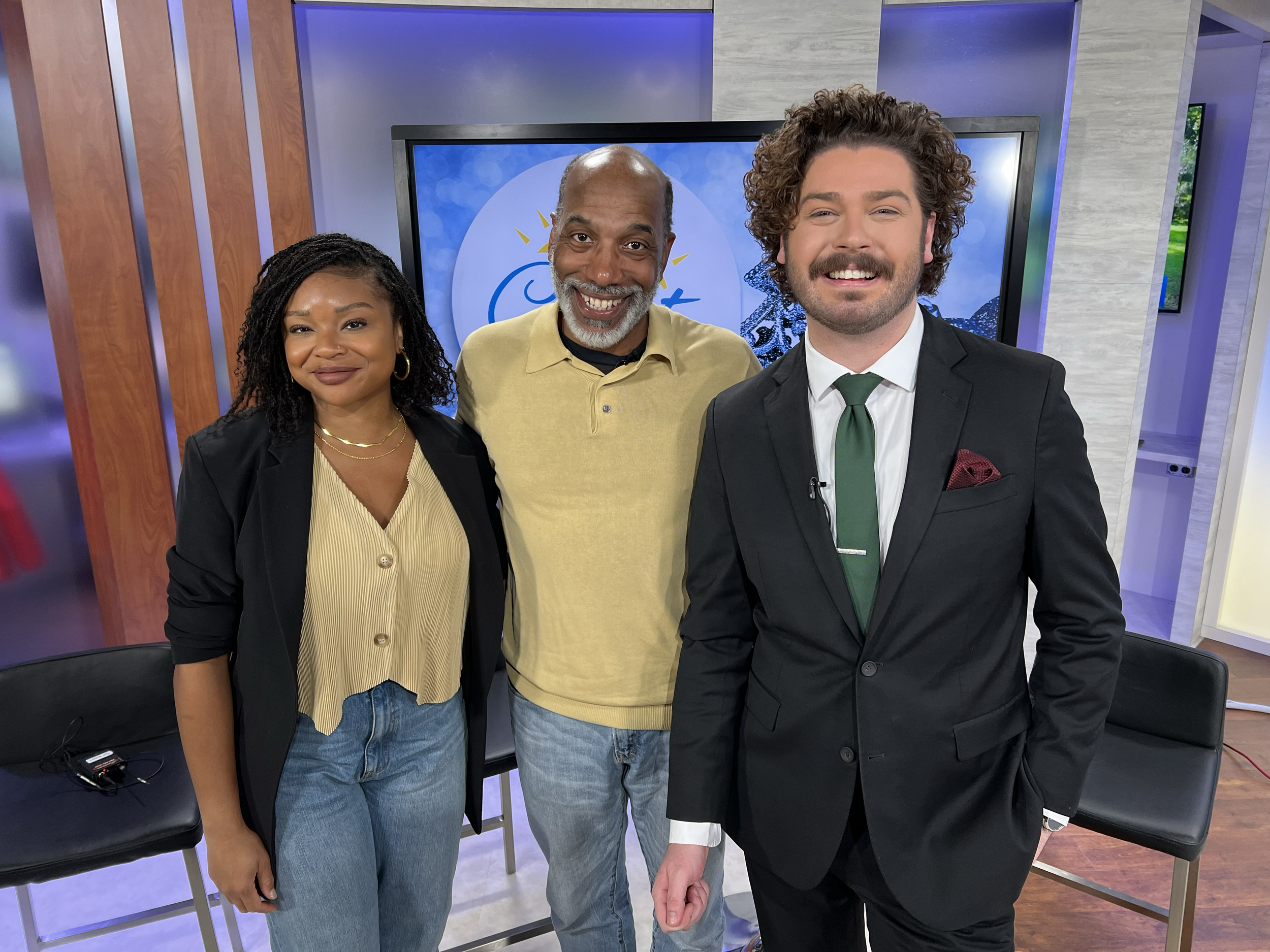Tarina J. Bradshaw as Angel Allen in Virginia Stage Company’s production of “Blues for an Alabama Sky.” (Sam Flint)
Pearl Cleage is a sly one when it comes to teaser titles, titles that bear an important but oblique relationship to her show’s content. “Flyin’ West” — recently done at Generic Theater — has little to do with birds and naught to do with planes; it is set in 1860s-1870s Nicodemus, Kansas, among Black “Exoduster” farmers. “Blues for an Alabama Sky” — the current Virginia Stage Co. offering — has little to do with Alabama, set, as it is, in 1930 Depression-era Harlem New York. (An “Alabama Sky” refers metaphorically to brilliant stars seen between buildings in NYC.) The character who uses the phrase is a recently arrived Alabaman (it’s the heyday of the Great Migration) who precipitates an urban tragedy with his country conservatism. Cleage’s “Bourbon at the Border,” eschews the obvious topic of rum runners and Prohibition, instead taking a 1995 perspective on 1964 Freedom Summer racial violence.
“Blues for an Alabama Sky” is so good that VSC is doing a rare second production, the first in season 1999-2000. And this production is so good that it, again, epitomizes what regional theatres can accomplish with a stellar all-equity cast (masterfully directed by Jerrell Henderson), even in a play replete with third-rail topics: sexual orientation, race, abortion, feminism. All of these were part of 1930 Harlem, and remain, as we see, flaming hot potatoes.
How does Cleage, an avowed feminist and advocate for Black justice, make these topics not just palatable but exhilarating?
She creates fresh characters with universal and specific needs and dreams, setting them down among the famous and near-famous of the period. Langston Hughes and Josephine Baker are mentioned enough to rate as full-fledged offstage characters. (There’s also a wall-hung picture of Baker that our male lead touches for luck, like a mezuzah.) The show’s linchpin character is Angel Allen (sweet and tart Tarina J. Bradshaw). She belies her name by being a boozer, former hooker, now-unemployed showgirl and sometimes gangster’s moll. She specializes in bad decisions but she’s a survivor and loveable (to the audience and the friends she frequently abuses). Chief among them is Guy Jacobs (small but mighty James T. Lane, in a supernova acting turn).
Jacobs is a confident “notorious homosexual” (his own epithet). He and Allen were childhood friends in Georgia before migrating North. He, too, has been desperate enough to turn tricks, but he has now parlayed his costuming talents into a better career in Harlem and, as he dreams, soon in Paris (working for Baker, his idol). When Allen cusses out her gangster at his Cotton Club (he’s had the nerve to marry a fellow Italian woman), Jacobs also loses his job there, straining his and Allen’s finances. “You gonna save me again, Big Daddy?” asks Allen. “Every chance I get,” he replies.
But Allen decides to guarantee her future by taking up with Leland Cunningham (Kendrix Brown, particularly good at silent reactions). He’s the aforementioned Alabaman who happens by to help Jacobs carry a dead-drunk Allen home at the play’s start. Cunningham is fascinated by her because she resembles his wife who died during childbirth, and the son did, too. It takes Cunningham forever to figure out that Jacobs is gay and then begins a stream of insults against him. Cunningham is, to put it mildly, no suitable partner for Allen, but he asks her to marry when he learns she is pregnant with their child. Brash decisions will ensue, especially when Baker finally responds to Jacobs’ overtures for work in Paris.
Across the hall from Jacobs and Allen lives Delia Patterson (the endearing Rachel Fobbs), a social worker determined to improve Harlemites’ lives via family planning. In Cleage’s feminist world, there are admirable “race women” as well as “race men.” Patterson is fated to be mated with Dr. Sam Thomas (the prodigiously talented Gregory Warren), a “race man” physician who spends every waking moment delivering babies or repairing gunshot wounds and every half-sleeping moment carousing. His motto for the latter is “Let the good times roll!” said often (perhaps to excess) in Cleage’s script.
There were minute issues at the April 19 preview performance. The tricky timing of the climactic violence (blackout/sound of a shot fired) still needs work and there were slight wardrobe malfunctions such as Allen’s hunched-up skirt revealing her slip. But these are infinitesimal issues within an exquisite rendition of this admirable play. The set — a colorful mural painted above and below the door-free, side-by-side apartment spaces — provides more magical names from the era: Cotton Club, the Apollo, Cab Calloway. These are names to conjure with, as is the show’s soundtrack, of the ever-evolving blues.
It is the least poetic figure, Cunningham, who conjures the play’s title: “I was missing that Alabama sky where the stars are so thick it’s bright as day. So, I looked up between the buildings and I thought I was dreaming. Didn’t even look like Harlem. Stars everywhere, twinkling at me like a promise.”
But the denizens of heartbreaking Harlem are both displaced (i.e., migrants) and misplaced. Black ghosts abound, created back South and/or in Harlem. Jacobs says wistfully, “Harlem was supposed to be a place where Negroes could come together and really walk about, and for a red-hot minute, we did.” He thinks the moment has passed and, like other Black artists, he will seek it out in Paris.
Don’t miss this contemporary chance to time travel.
As Jacobs might say, “Bon voyage, mes cheris!”
By Dr. Page Laws








